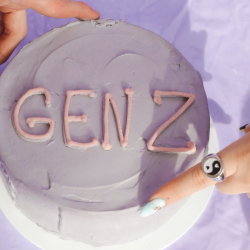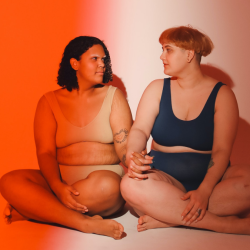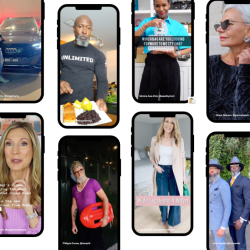We see it all the time on social media: influencers and individuals pushing people to take care of themselves, all day every day
Closely followed by businesses and brands shoving similar content down everyone’s throats (especially that of Gen Z). It makes you wonder… why do brands seem to care so much about teenagers and young adults? In an era marked by individualism it’s critical we re-evaluate our capacity for empathy.
We love stories dedicated to rekindling empathy: from local community leaders to international humanitarian efforts. But to put it bluntly, businesses only care about one thing at the end of the day and that’s money. Sorry to disappoint you, dear Gen Z reader, but big corporations don’t care about you. Fashion brands like Boohoo, PrettyLittleThing, ASOS and Zara target Gen Z in almost all their marketing campaigns because we are their main customer base.
And is it right to target us so heavily? Let’s look at the mental health of this group: a study conducted by Harmony Healthcare IT in 2022 shows that 42% of Gen Z have been diagnosed with a mental health condition. And 1 in 4 got diagnosed during the pandemic, with a shocking 57% under medication for their mental state. The top mental health condition is anxiety at 90%, followed by depression at 78%.
A lot of this has to do with advice that we get online, which seems helpful at first but actually doesn’t offer any long-term solutions. Here are some examples:
Relatively good advice, right? But will making your bed or crying it out actually help your depression?
One organisation that’s doing good work in this space is Unilever. The Dove Self-Esteem Project, dedicated to promoting positive self-esteem and body confidence among young people, was launched in 2004, and has since been an ongoing initiative that’s still going strong in 2023. By empowering people to develop a healthier self-image, Unilever exemplifies a brand actively filling the gap in promoting mental well-being and self-care.
The rise of Gen X…
A trend on Instagram and TikTok right now is content being produced by what Gen Z would call old people; namely Gen X (born 1965-1980). Most would agree that social media is a tool primarily used by Gen Y, Gen Z and millennials, so to have over 50s regularly putting out content seems odd to a lot of people, myself included.
Because now, it seems, Gen X is rivalling Gen Z and millennials when it comes to brand deals, views, and attention garnered online. Something no one could have predicted a few years ago. A recent study by Wavemaker shows that 92% of Gen X use social media every day, and are the fastest growing demographic on TikTok.
My view on mental health and self-care is simple: give it your best every day. It doesn’t matter how big the effort is, what counts is that you keep on improving, even if it’s just baby steps. And brands have to actually care about us, and not just pretend to do so to gain trust and take money out our pockets.
Featured image: Derick Daily / Unsplash































